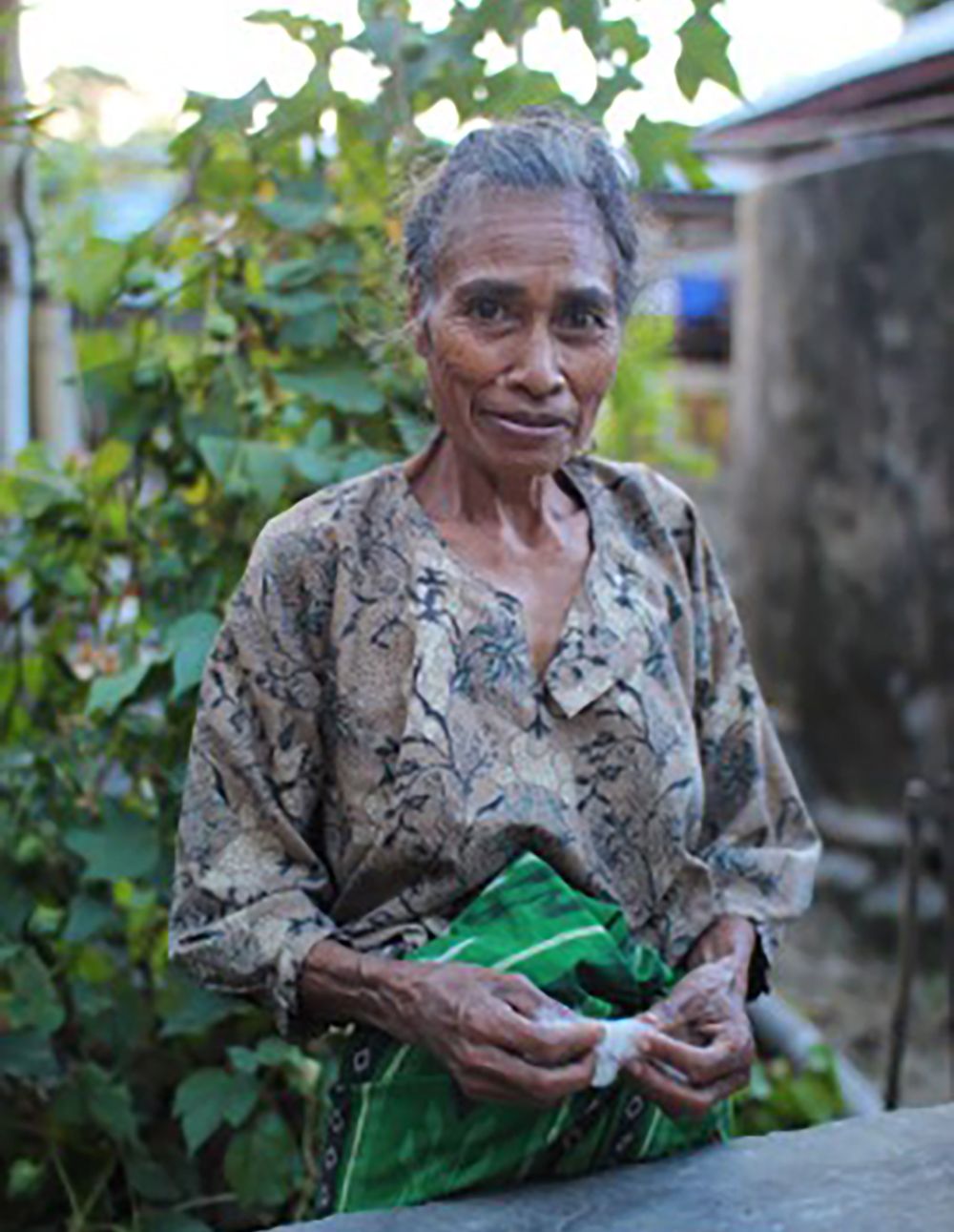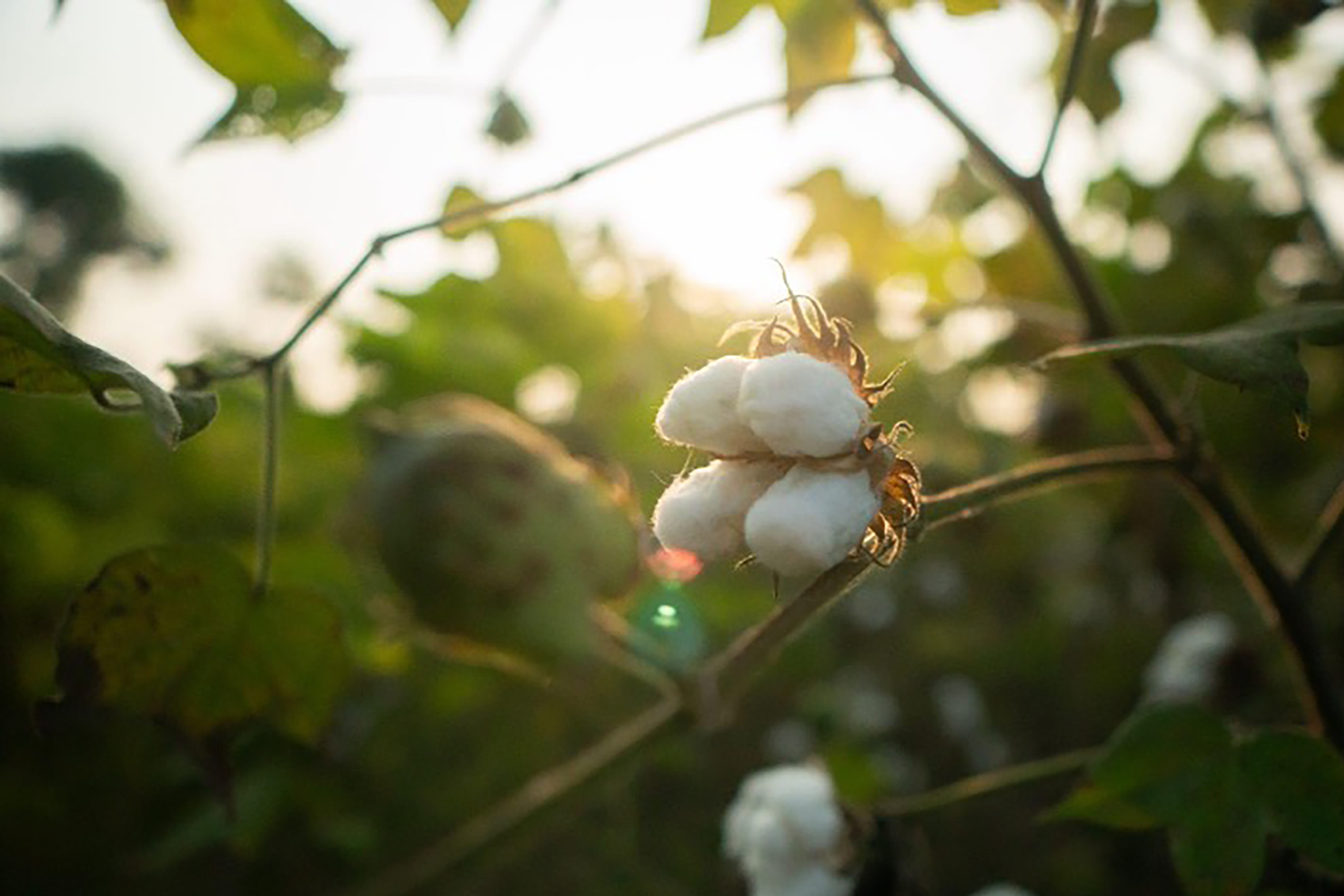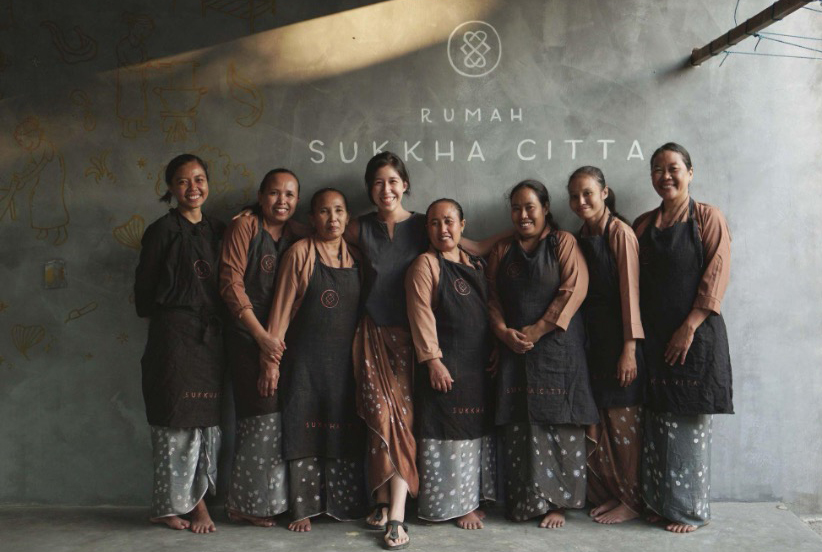From farm to closet: Indonesian fashion founder Denica Riadini-Flesch wins UCLA’s Pritzker
October 8, 2025
Denica Riadini-Flesch, an economist turned entrepreneur redefining one of the world’s most polluting industries, has been awarded the 2025 Pritzker Emerging Environmental Genius Award by UCLA’s Institute of the Environment and Sustainability.
She received the $100,000 prize for pioneering one of the world’s first “farm to closet” supply chains, which positions smallholder farmers and women artisans as producers and culture-holders rather than piece-rate labor.
Her win, announced Oct. 8 in Los Angeles by philanthropist Tony Pritzker, makes her the ninth laureate of UCLA’s flagship award for next-generation environmental innovation.
“The most challenging aspect of this award process is choosing just one to be the winner — each of the many nominees is truly exceptional,” said Pritzker, whose foundation first awarded the annual prize in 2017. “Denica is a standout example of a social entrepreneur who is leveraging her commitment to environmental sustainability to both preserve Indonesian traditions and create a viable business model — forging a path which many will no doubt follow.”
Trained as an economist in urban Jakarta, Riadini-Flesch once believed progress was linear, measured by perpetual growth. That view shifted when she visited rural villages in Indonesia and met women like Ibu Lilik, whose hands and lungs were scarred by synthetic dyes used in fabric production.

Courtesy of SukkhaCitta
An Indonesian farmer in SukkhaCitta’s Mama Kapas program, which reintroduces heirloom cotton to regenerate degraded land.
“It burns my hands, my eyes, my lungs,” Ibu Lilik told her. “But what choice do I have?”
For Riadini-Flesch, that encounter was a reckoning with the human toll of fashion. That led her to found SukkhaCitta, a social enterprise and ethical fashion label built on regenerative farming systems and heritage craft.
SukkhaCitta partners with hundreds of farmers and artisans across Java, Bali, Flores and West Timor — bypassing factory floors to keep production at the village level. Cotton is grown on small family plots, dyes are coaxed from indigo plants and cloth is woven on handlooms in courtyards.
The results have been ecological and economic. To date, the model has restored more than 120 acres of degraded land; prevented nearly 5 million liters of toxic dye wastewater from entering rivers; reduced emissions by 25 tons of CO2; eliminated 6,000 single-use plastic bags; and increased women’s incomes by an average of 60%.
“Artisans and farmers are the missing link to solving the climate crisis, and we ignore them at our peril,” Riadini-Flesch said. “My work shows that when rural artisans lead — when Indigenous wisdom, regenerative farming and economic dignity are placed at the heart of our solutions — we don’t just reduce harm, we lay the blueprint for a regenerative future.”
Most supply chains move in one direction: raw resources out, waste left behind. Riadini-Flesch’s runs in reverse: seeds and incomes grown first, garments sewn last. That inversion, she says, is what makes the system regenerative rather than extractive.
Her approach blends Indigenous techniques with ecological research. Farmers reintroduce heirloom cotton, cultivate natural dye plants and rotate crops to restore soil. Artisans revive heritage textiles through zero-waste methods. The result is healthier land, cleaner rivers, and livelihoods that preserve generational craft.

Courtesy of SukkhaCitta
Heirloom cotton grown on small family plots replaces monocropped varieties that degrade soil.
“Denica has created a regenerative masterpiece, weaving together what is good for the soil, for farmers and craftspeople, and for consumers,” said Audrey Choi, chair of the Generation Foundation and a judge for this year’s award. “She has reimagined a new kind of supply chain from the ground up, where the creation of beautiful goods helps restore nature and strengthen communities.”
Though anchored in Indonesia, SukkhaCitta’s reach now extends far beyond those villages. Its textiles have been worn by cellist Yo-Yo Ma, Coldplay’s Chris Martin and oceanographer Sylvia Earle — proof that clothing made on family plots can resonate on global stages. The company now ships to more than 30 countries.
Riadini-Flesch’s model extends into education through “Rumah SukkhaCitta” schools, where women learn heritage techniques alongside ecological literacy and business training. Younger generations are beginning to take notice: The average age of artisans in her network is dropping as traditional knowledge gains new value.
By 2050, she aims to regenerate 2.5 million acres of land and create sustainable livelihoods for 10,000 women.

Courtesy of SukkhaCitta
Riadini-Flesch (fourth from left) with women artisans at Rumah SukkhaCitta, where ecological literacy and heritage craft are taught together.
The global fashion industry produces an estimated 92 million tons of textile waste each year and contributes up to 10% of global carbon emissions. The bulk of that impact falls on low-wage workers and degraded landscapes.
SukkhaCitta offers a systems-level alternative, demonstrating how climate-conscious supply chains can also rebuild dignity and preserve culture.
“The way Denica turned economic theory into practice isn’t just revolutionary — it’s a model the business sector can adopt starting now,” said Alex Hall, director of UCLA’s Institute of the Environment and Sustainability. “She’s paving the way, and it’s up to us to follow her lead.”
Now in its ninth year, the Pritzker Emerging Environmental Genius Award is the first major U.S. prize dedicated to spotlighting next-generation environmental leaders who are under 40. The 2025 cycle drew 13 nominees from around the world, each put forward by established figures in science, policy and conservation. Riadini-Flesch was nominated by Farwiza Farhan, an Indonesian conservationist and the 2021 Pritzker laureate, underscoring the prize’s growing network of leaders across the Global South.
At this year’s ceremony — attended by UCLA Chancellor Julio Frenk — Riadini-Flesch received $100,000, while two additional finalists received $5,000 each. The award, endowed by the Anthony Pritzker Family Foundation, provides not only funding but also visibility and institutional backing at a formative moment in an innovator’s career.
For Riadini-Flesch, the award affirms a vision she has been building for nearly a decade.
“The opposite of poverty isn’t wealth,” she said. “It’s dignity.”
Search
RECENT PRESS RELEASES
Related Post




